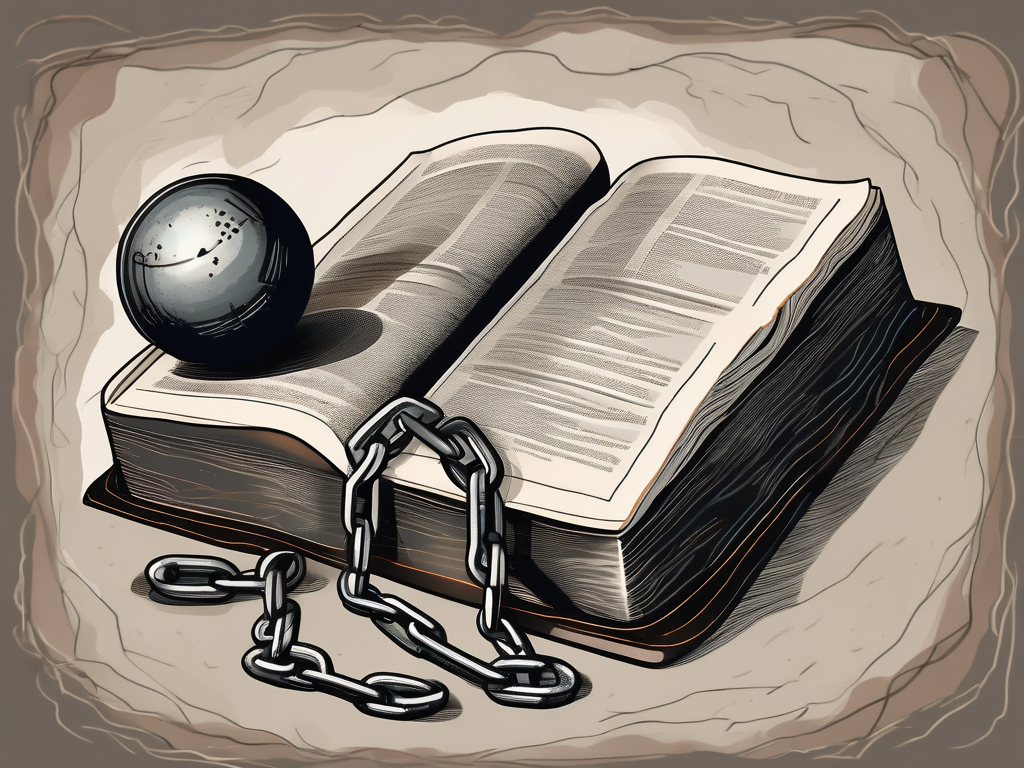In today’s world, the role of women in various aspects of society continues to evolve. One area where this evolution is particularly relevant is within the context of religion and spirituality. Many people, curious about the teachings and principles of the Bible, wonder what it has to say about women preaching. Are women called to lead and share the Word of God? Are there any restrictions or limitations placed on their role within the church? In this article, we will explore these questions and delve into the biblical passages that shed light on this topic.
Understanding the Role of Women in Biblical Times
The Cultural Context of Women in the Bible
It is important to understand the cultural context of biblical times when examining the role of women. During this period, societal norms and expectations dictated that men held positions of leadership and authority. Women were often seen as subordinate and were expected to fulfill domestic roles. However, it is crucial to remember that the Bible reflects both the culture of the time and God’s timeless message.
When exploring the cultural context of biblical times, it is fascinating to delve into the daily lives of women. In ancient Israel, women were primarily responsible for managing the household, raising children, and ensuring the overall well-being of the family. They were skilled in various domestic tasks such as cooking, weaving, and caring for livestock. Additionally, women played a vital role in passing down traditions, stories, and religious practices to future generations.
While women were often confined to domestic roles, it is important to note that they were not completely excluded from public life. In some instances, women were able to exert influence and hold positions of authority. For example, the story of Queen Esther showcases a woman who used her intelligence and bravery to save her people. Her courage and strategic thinking demonstrate that women had the potential to make significant contributions to their communities.
Women in the Old Testament
The Old Testament presents numerous examples of women playing important roles in the history of God’s people. From Deborah, who served as a judge and prophetess, to Miriam, who led the Israelites in worship, women were not excluded from positions of influence and leadership. These examples challenge the notion that the Bible universally restricts women from preaching and leading in the church.
Delving deeper into the stories of these remarkable women, we find that their leadership roles were not only recognized but also celebrated. Deborah, for instance, led the Israelites to victory in battle, demonstrating her exceptional wisdom and courage. Her story serves as a powerful reminder that women have always possessed the capacity for leadership and the ability to make significant contributions to society.
Furthermore, the Old Testament also highlights the importance of women as spiritual leaders. Miriam, the sister of Moses, played a crucial role in the Exodus story. She led the Israelite women in joyful worship and praise after they crossed the Red Sea. Miriam’s leadership in worship demonstrates that women were active participants in the religious life of the community, contributing to the spiritual growth and well-being of God’s people.
Women in the New Testament
The New Testament further expands on the role of women within the early Christian community. Women like Phoebe, Junia, and Priscilla are commended for their ministry and partnership with apostles, indicating their active involvement in preaching and teaching. This evidence suggests that women had a significant role to play in spreading the message of the Gospel.
Exploring the lives of these women in the New Testament reveals their immense dedication and commitment to the early Christian movement. Phoebe, for example, is described as a deaconess and a benefactor to many, highlighting her influential role in supporting the growth of the early church. Junia is recognized as an apostle, indicating her significant contribution to the spread of Christianity. Priscilla, alongside her husband Aquila, is portrayed as a teacher and mentor to Apollos, a prominent early Christian preacher. These examples demonstrate the active participation of women in the ministry and leadership of the early church.
It is important to note that the New Testament also acknowledges the challenges faced by women in their pursuit of ministry. Despite these challenges, women in the early Christian community persevered and made lasting contributions that continue to inspire and shape the church today.
Key Biblical Passages on Women Preaching
When discussing the topic of women preaching, one passage that often comes up is 1 Corinthians 14:34-35. In these verses, the apostle Paul seemingly instructs women to be silent in church. However, as with many biblical passages, there is much debate and interpretation surrounding this particular verse.
Some scholars argue that Paul’s instructions in 1 Corinthians 14:34-35 were addressing specific disruptions within the Corinthian church at that time. They suggest that these instructions were not meant to universally silence women in all church settings. Instead, they propose that Paul was addressing a particular cultural context and specific issues that were present in the Corinthian church.
On the other hand, there are those who interpret these verses as temporary restrictions that were specific to the cultural context of the early church. They believe that Paul’s instructions were meant to address a particular situation and were not intended to be applied universally to all churches throughout history.
Clearly, the interpretation of 1 Corinthians 14:34-35 requires careful study and consideration of its proper context. It is important to delve into the historical and cultural background of the Corinthian church in order to gain a deeper understanding of the intended meaning behind these verses.
Exploring 1 Timothy 2:11-12
Another verse that frequently arises in conversations about women preaching is 1 Timothy 2:11-12. In this passage, Paul instructs women to learn quietly and not to have authority over men. As with 1 Corinthians 14:34-35, there are differing interpretations of this verse.
Some scholars argue that Paul’s instructions in 1 Timothy 2:11-12 were specific to a particular situation within the church at Ephesus, where Timothy was serving as a leader. They believe that Paul was addressing a specific issue of false teaching and disruptive behavior that was occurring in that specific church context.
On the other hand, there are those who argue for the universal application of these instructions. They believe that Paul’s words were meant to be applied to all churches and for all time, emphasizing a hierarchical structure where men hold authority over women.
These differing interpretations highlight the complexity of this topic and the need for careful study and discernment when considering the role of women in preaching and teaching within the church.
The Significance of Galatians 3:28
While discussions about women preaching often focus on passages that appear to limit their roles, it is important to also consider verses that emphasize equality and unity. One such verse is Galatians 3:28, which states, “There is neither Jew nor Gentile, neither slave nor free, nor is there male and female, for you are all one in Christ Jesus.”
This powerful verse challenges societal divisions and suggests that gender should not be a limiting factor when it comes to serving and proclaiming the Gospel. It highlights the inclusive nature of the Kingdom of God, where all believers, regardless of gender, are equal in Christ.
Galatians 3:28 serves as a reminder that our identity and worth as followers of Christ are not determined by our gender, but rather by our relationship with Him. It encourages us to embrace the gifts and callings that God has placed upon each individual, regardless of gender, and to work together in unity to advance His Kingdom.
Theological Perspectives on Women Preaching
Throughout history, the role of women in preaching has been a topic of debate within theological circles. Different perspectives have emerged, each offering unique insights and interpretations of biblical teachings. Two prominent theological perspectives on women preaching are complementarianism and egalitarianism.
Complementarian View on Women Preaching
The complementarian perspective asserts that men and women have distinct but complementary roles within the church and society. According to this viewpoint, men are primarily responsible for leadership and preaching, while women are encouraged to serve in supportive roles. Proponents of complementarianism often cite specific biblical passages to support their stance.
One of the key biblical texts often referenced by complementarians is found in the New Testament, in the writings of the apostle Paul. In his letter to the Corinthians, Paul states, “Let your women keep silent in the churches, for they are not permitted to speak; but they are to be submissive, as the law also says” (1 Corinthians 14:34). Complementarians interpret this passage as a clear indication that women should not take on the role of preaching or teaching in the church.
Furthermore, complementarians often point to the creation account in the book of Genesis, where God creates man and woman with distinct roles. They argue that these roles are not based on superiority or inferiority but on the idea of complementarity. In this view, men and women are seen as equal in value but different in function.
Egalitarian View on Women Preaching
On the other hand, the egalitarian perspective advocates for the equal standing and abilities of men and women in all areas of life, including preaching and leadership within the church. Proponents of this view argue that the Bible supports gender equality and that both men and women are called to use their gifts and talents for the Kingdom of God.
Egalitarians often point to various biblical examples of women who played significant roles in the early Christian church. For instance, they highlight the ministry of Phoebe, who is mentioned by the apostle Paul in his letter to the Romans (Romans 16:1-2). Paul refers to Phoebe as a deacon and a helper of many, implying that she held a position of leadership and influence within the church.
Additionally, egalitarians emphasize the teachings of Jesus, who consistently treated women with respect and dignity, challenging the cultural norms of his time. They argue that Jesus’ interactions with women, such as the Samaritan woman at the well (John 4) and Mary of Bethany (Luke 10:38-42), demonstrate his affirmation of their worth and value.
Moreover, egalitarians contend that the apostle Paul’s writings should be interpreted within their cultural and historical context. They argue that Paul’s instructions regarding women in the church were specific to certain situations and not meant to be universally applied. They believe that Paul’s overarching message is one of unity and equality among believers, as he states in Galatians 3:28, “There is neither Jew nor Greek, slave nor free, male nor female, for you are all one in Christ Jesus.”
In conclusion, the theological perspectives on women preaching, namely complementarianism and egalitarianism, offer contrasting views on the roles and abilities of women within the church. While complementarians emphasize distinct but complementary roles, egalitarians advocate for equal standing and opportunities for both men and women. The ongoing dialogue and exploration of these perspectives contribute to a deeper understanding of the biblical teachings and the diverse ways in which individuals interpret and apply them.
The Role of Women in the Church Today
Modern Challenges and Opportunities for Women Preachers
In contemporary times, women continue to face challenges and opportunities in the realm of preaching and leadership. Some churches have embraced women in positions of authority, while others remain more traditional. The ongoing dialogue surrounding women’s roles in the church today prompts reflection and consideration of how to best utilize the talents and gifts of all believers.
The Impact of Cultural Shifts on Women’s Roles in the Church
As society undergoes rapid cultural shifts, the role of women in the church has undoubtedly been influenced. Changes in societal views on gender roles and equality have prompted discussions about how these shifts should be reflected within religious institutions. It is important for churches to navigate these changes while remaining true to their theological convictions.
Conclusion: Revisiting the Question of Women Preaching in the Bible
Balancing Tradition and Progress in the Church
When examining what the Bible says about women preaching, it is essential to consider both the historical context and the overarching principles of Scripture. While certain passages may appear to limit women’s involvement, other examples and themes indicate a broader scope of participation. The challenge is finding the balance between holding to biblical truths and engaging with the current needs and cultural contexts of the church.
The Ongoing Debate on Women Preaching
The question of women preaching in the Bible is an ongoing debate with various viewpoints and interpretations. As Christians continue to study and understand God’s Word, it is crucial to approach this topic with grace, humility, and a desire to seek God’s guidance. Ultimately, the answer to this question may lie not in binding restrictions, but in empowering women to follow their calling and faithfully serve God alongside their male counterparts.
As we navigate this complex issue, it is important to remember that our ultimate focus should always be on love, unity, and fulfilling the great commission. Women have and continue to play integral roles in the expansion of God’s Kingdom, whether through preaching, teaching, or other forms of ministry. Let us support and celebrate the contribution of women in the church as we seek to honor God and proclaim the Gospel to all.












